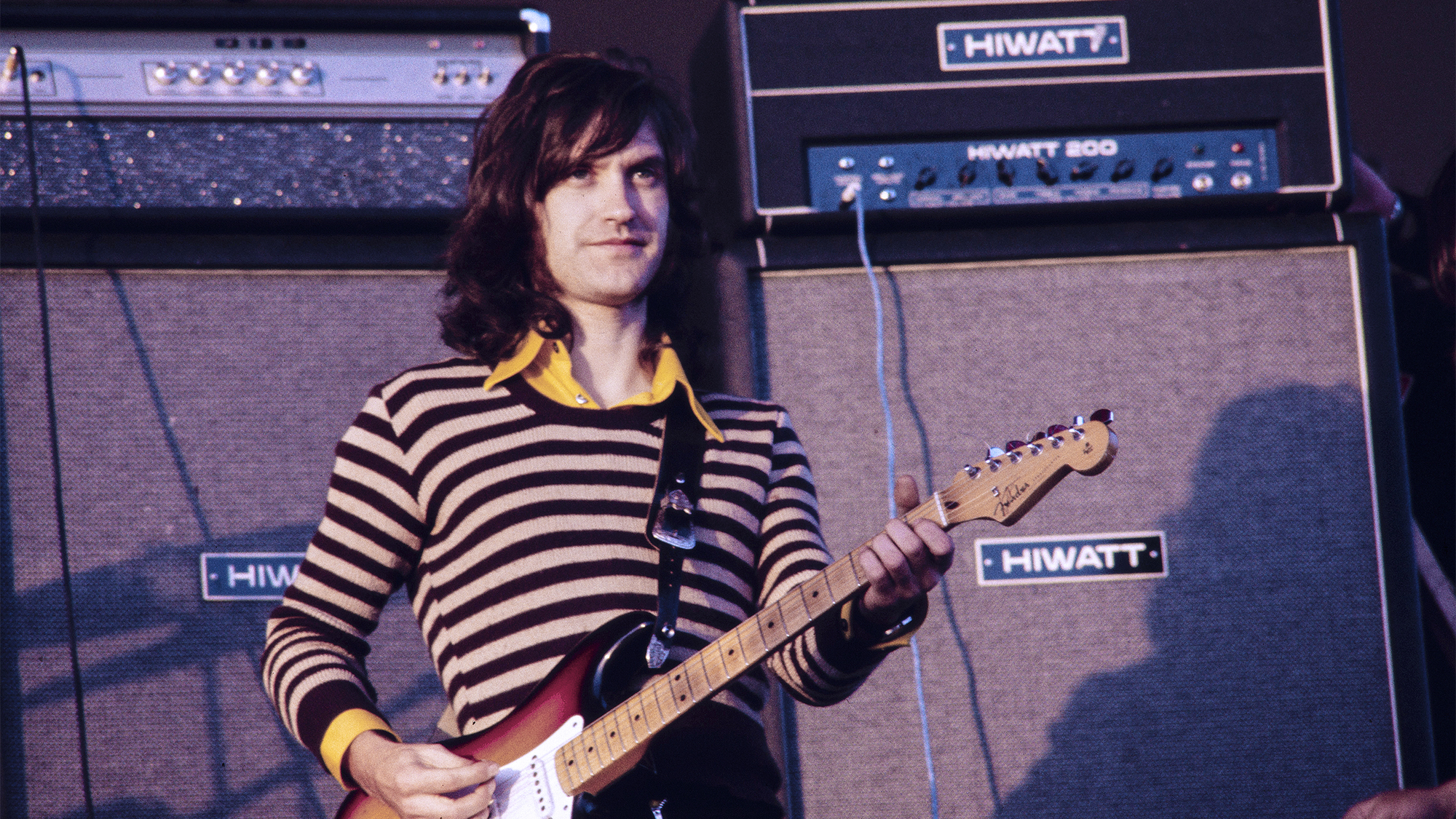"He had a brilliant mind and a strong vision for what he wanted; my job was to make that happen." Allan Holdsworth's engineer reveals what happened when the tape rolled for the guitarist's groundbreaking albums
Recording engineer/mixer Robert Feist shares stories from Holdsworth's sessions for 'Road Games' and 'Metal Fatigue.'
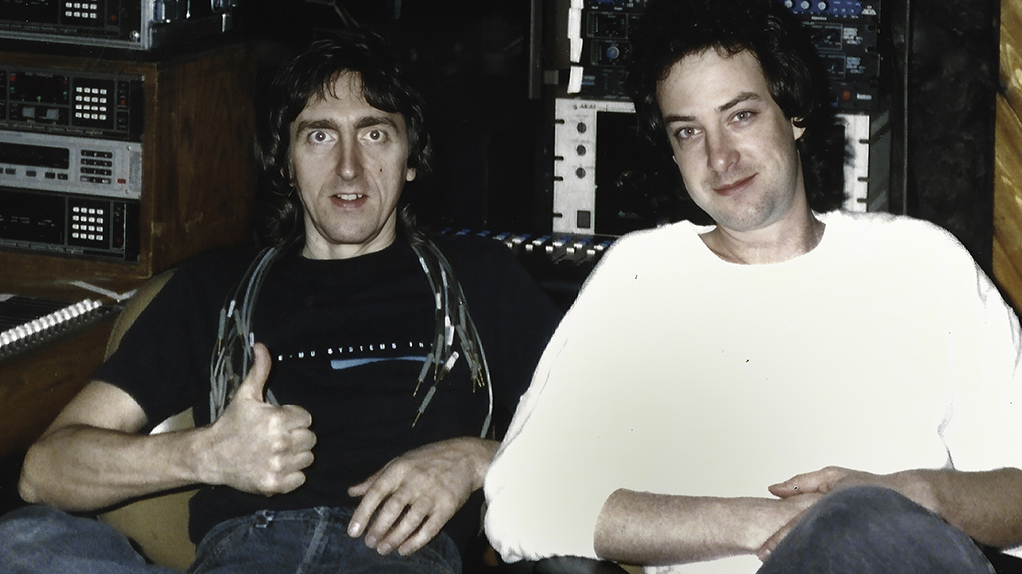
“Sometimes I get loose of all the chains, and it seems like almost anything is possible.” Allan Holdsworth, Guitar Player, April 2008
Allan Holdsworth has graced the cover of Guitar Player magazine at least three times and participated in numerous articles and interviews featuring the intricacies and techniques of his sound. Characterized by his unique chord progressions, complex solos, and use of legato phrasing, Allan’s innovative approach to guitar set him apart. He was a pioneer of the jazz fusion genre, influencing countless guitarists with his work in bands such as Soft Machine, Gong, and UK, as well as his solo career. Holdsworth’s groundbreaking albums, like Road Games and Metal Fatigue, showcased his technical prowess and creative genius, cementing his legacy as one of the most influential guitarists of our time.
Allan’s unparalleled approach to guitar playing and music production created an atmosphere of innovation and creativity in the studio. To my knowledge, no one has authored an article focused on Allan’s countless hours in the studio crafting his music. In this article, I’ll take you behind the scenes of those early sessions, sharing stories and technical insights and revealing Allan’s unwavering artistic integrity and unique personality. The photos accompanying this article come courtesy of Eddie Coralnick, who generously allowed us a glimpse into his personal archive of Holdsworth photos and mementos.
In the spring of ’83, the Music Grinder Recording Studio in Hollywood hired me to assist with a recording session for jazz violinist Jean-Luc Ponty with studio owner Gary Skardina behind the console. I was at the point in my career where I was still assisting sessions occasionally but also held a good measure of experience behind the console in the engineer’s chair. The session started as usual, with roadies and musicians hauling in and setting up gear. I noticed the guitar player loading in by himself and went over to give him a hand. I’d heard he was an incredible guitarist and expected him to be temperamental, but his demeanor spoke only of someone running late in L.A. traffic, not the capricious musician I’d expected. We slid his amp behind his chair, and I began to surround it with foam baffles to contain the sound.
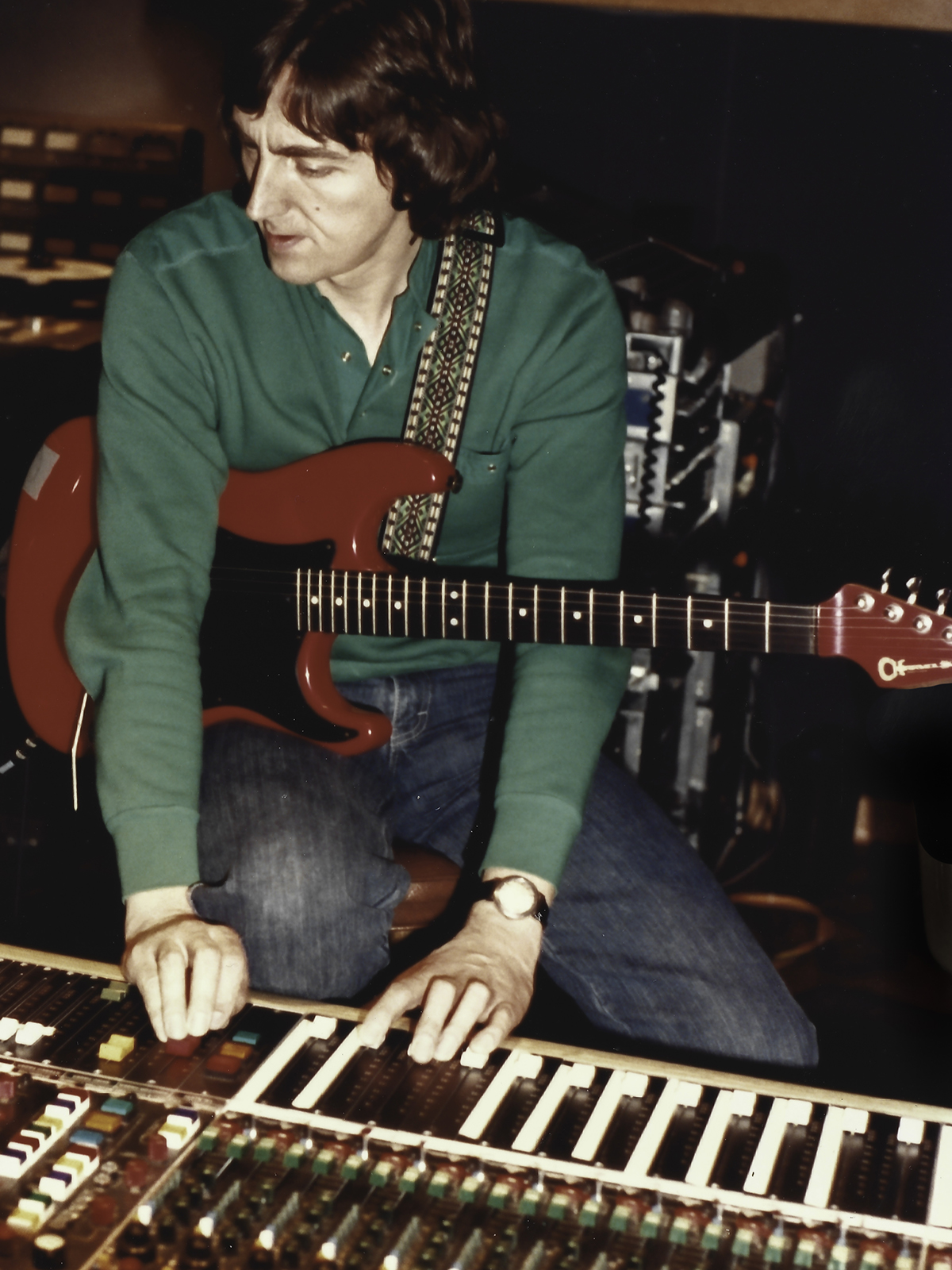
“Is this going to be all right with you?” I asked.
“Oh, yeah, sure man, whatever you have to do.” We exchanged a few more words, and it struck me how polite and gentle he was, almost shy. I’d just met Allan Holdsworth for the first time.
Several months later, Allan returned to the Music Grinder to record a solo album. On Eddie Van Halen’s recommendation, he’d been signed to Warner Brothers by Ted Templeman, who served as executive producer for the project. The studio booked me to assist British engineer Jeremy Smith, whom Allan had hired to record the project. Jeremy recorded the basic tracks (bassist Jeff Berlin and drummer Chad Wackerman along with Allan) in the studio’s back room, featuring a 20-foot bow-truss ceiling, brick walls, and a concrete floor covered with a mosaic of carpets. It was one of L.A.’s best drum rooms (the same studio where Phill Collins recorded drums for the hit “Against All Odds.”)
After several days of tracking, Jeremy made rough mixes for Ted Templeman’s review. Ted thought the recordings sounded too washed out and wanted the tracks re-recorded in the smaller, tight-sounding room. I can still picture Allan’s face, drawn and lined with stress, as he walked through the control room. On top of having to re-record tracks Allan was happy with, the process ground down the budget. A few weeks later, studio owner Ron Felicia asked if I’d help Allan finish the album and do the work for only my assistant’s pay rate. I’d gotten to know Allan and liked him, so I jumped at the chance to work with him as an engineer.
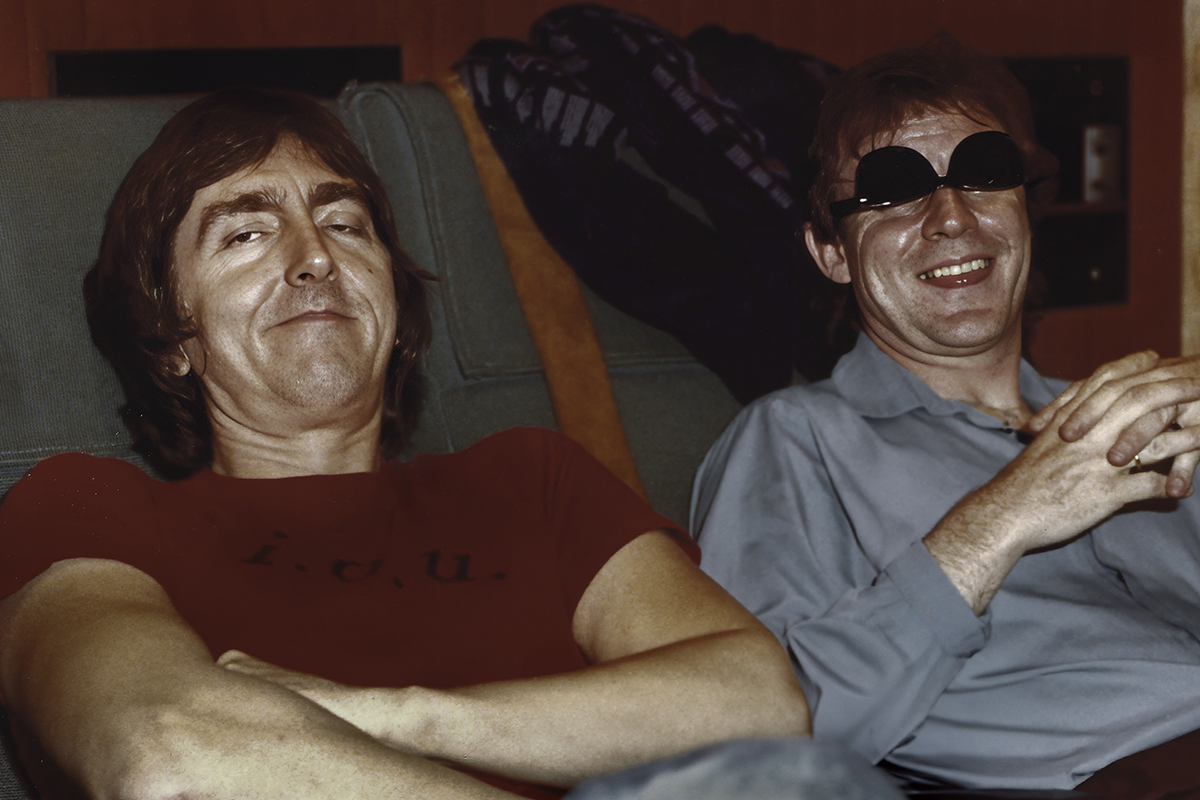
That evening, as I set up the control room for the session, Allan walked in, set down his guitar case, and shook my hand.
“Hey, Robert, sorry man to put you through this. Ha, well, thanks for helping me out.” His unassuming friendliness set me at ease.
We carried in amps and cases of effects, walked the studio and discussed the setup. We put the amps in the control room and ran the speaker cable to the cabinets in the studio. With Allan playing in the control room, there was no need for a headphone cue system, making communication easier. It also allowed Allan to listen to the substantial control room monitors while he recorded his overdubs (Urei Time Align 813Bs with Altec 604 speakers) instead of a headphone mix. We discussed mic techniques: the British trend of micing a guitar amp from several feet back vs. close miking, placing the mic a few inches from the speaker. Allan wanted to experiment with everything. We’d change mics and listen, move mics and listen, change amps and speaker cabinets, listen and compare.
With his guitar wrapped around him, Allan would dial up a sound on an amp or an effect, play a little and tweak a little, his mind focused on the knobs and the sound, his large hands and fingers flying with an unearthly dexterity, spinning wild, unique musical riffs. I stood there with my attention ripped from the sound we were working on, stared at his hands, and listened to these musical phrases drop from his fingers like an afterthought. When I’d call his attention to it, he’d smile and go on tweaking without missing a beat.
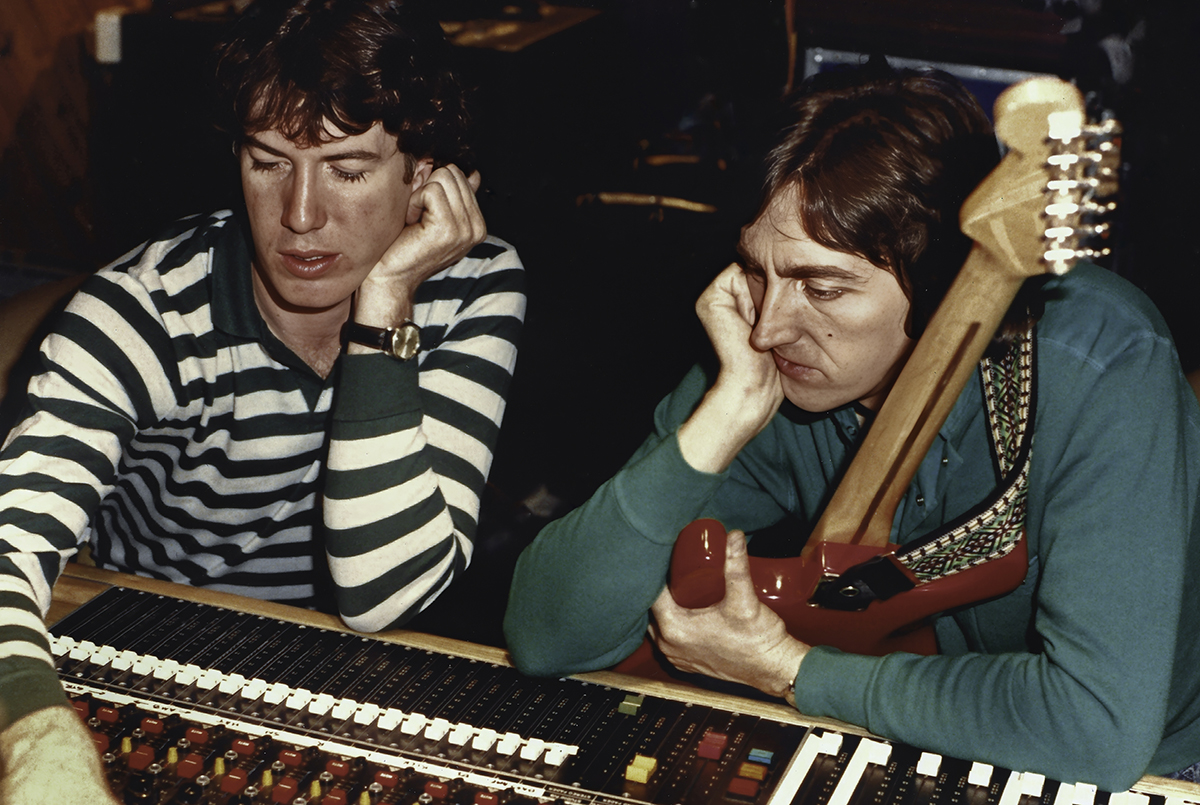
Allan’s guitar sounds were not heavy metal, rock, or jazz. They covered a broader spectrum, with a natural low end and a smooth top, so he gravitated to better-quality mics capable of capturing it. For the most part, we used Neumann U87s in the sweet spot, halfway between the speaker edge and the cone about a foot back, where the sound is natural with a close presence.
On one of those first nights, he tried to describe the sound he was looking for as I attempted to dial it up on the Trident TSM console we were using. The EQ on the Trident TSM is different from most consoles, utilizing small faders instead of knobs. I thought, this guy knows what he wants.
“Here, let me show you how this EQ works.” I talked him through it and stepped back. He reached over the console, his head dropped, and he zoned in on the sound as he fiddled with the little faders and knobs. I thought, Oh, I know how to work with this guy; I just have to let him be a part of it. I’ve never felt territorial in the studio. I just want whatever is best for the session. It turned out to be what Allan needed: help navigating the muck and mire of the recording studio without opposition. He had a brilliant mind and a strong vision for what he wanted; my job was to make that happen.
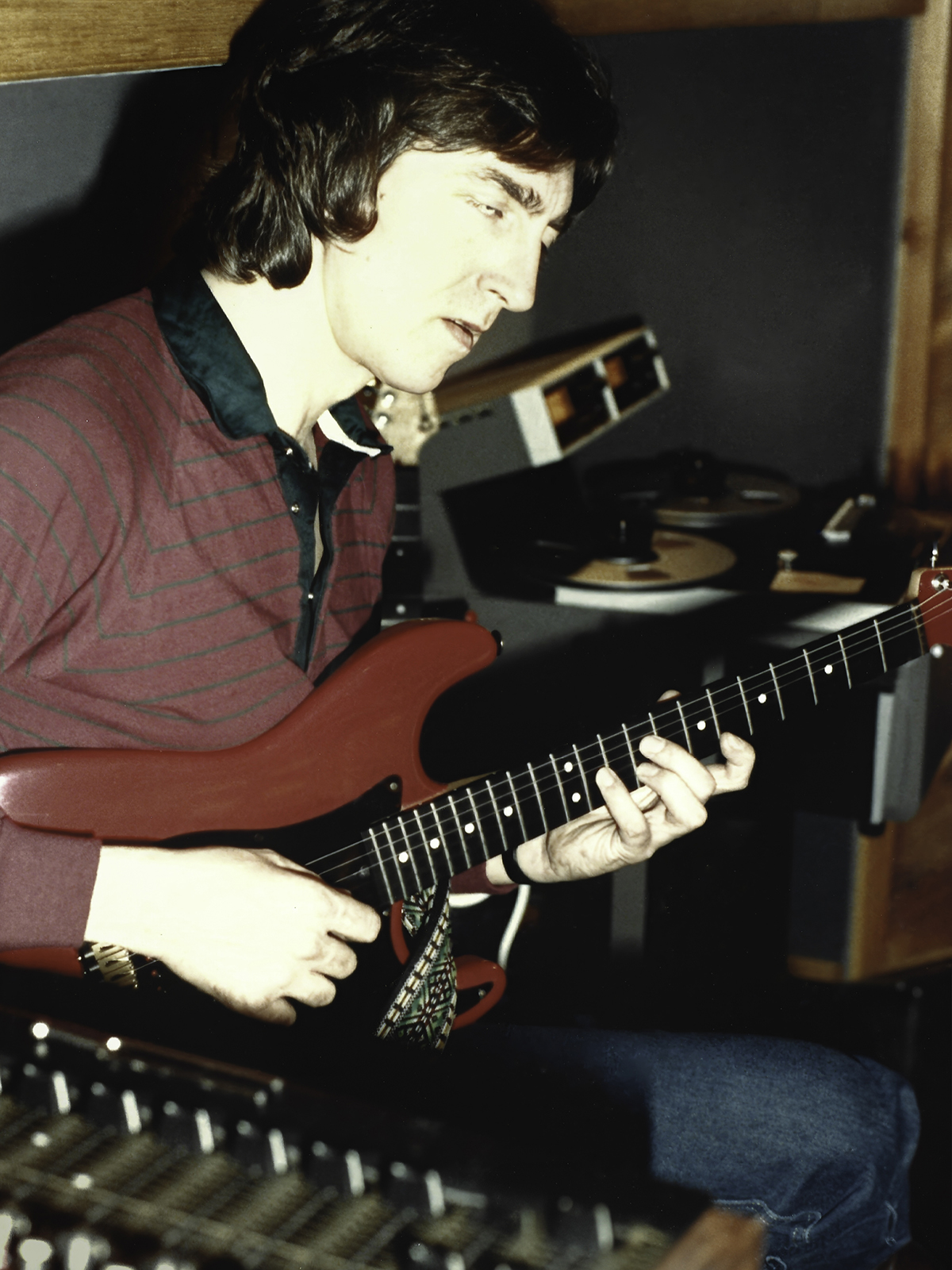
We wrapped about midnight, I ran off a couple of cassette copies of the day’s work, and we headed home. On the way, I popped the tape into my car’s cassette player and pulled into a fast-food drive-through. I placed my order for a muffin-something and waited. Allan’s guitar solo poured from the car speakers, and the reality and depth of what we’d recorded hit me. Somehow, the technical details, taking notes, recording, and talking with Allan had distracted me enough that I hadn’t grasped what had happened. I’d heard Allan in the studio many times before, but sitting there, waiting for my breakfast sandwich, listening to his solo, it struck me. There was a physical sensation to my reaction, a flash like a dream or a memory, something old combined with the future. The tape sounded and felt much larger than the recording we’d just made.
One evening, Allan asked me to put up the song “Tokyo Dream.” I threaded the tape on the machine and pushed up a reference mix while Allan dialed up a guitar sound. It was common for him to experiment with different amps, cabinets, and processing, but this time, he had a sound in mind and was reaching for it. He moved with purpose, patching in delays and a combination of choruses. He was standing behind the console a few feet from me. He dropped his right index and middle fingers on the strings, using hammer-ons and slides, and this stunning Japanese chime flowed out of the speakers. When he was ready, I rolled the tape and dropped into record. I was mesmerized watching him. We recorded one track after another, and by the end of the night, Allan’s guitar parts filled the room with an intoxicating Asian charm. It didn’t seem possible that those sounds came from a guitar. Of all the songs I’ve recorded, “Tokyo Dream” is still one of my favorites.
Allan titled the album Road Games. There are no synthesizers on the album. It’s all guitar. Allan played the orchestral parts using various stereo chorus units: AMS 15-80 S, A/DA STD-1 Stereo Tap Delay, and stand-alone delays like the Yamaha D1500 with a slight LFO and short delay times, combined with longer, out-of-time delays for depth. He’d play one of his inventive chord voicings, ride the volume pedal up at the right moment, and gorgeous orchestral pads poured from the studio monitors. Road Games was nominated for Best Rock Instrumental Performance at the 1984 Grammy Awards. Along with bassist Jeff Berlin and Frank Zappa’s drummer Chad Wackerman, the album featured Cream vocalist Jack Bruce and former Juicy Lucy and Tempest frontman Paul Williams.
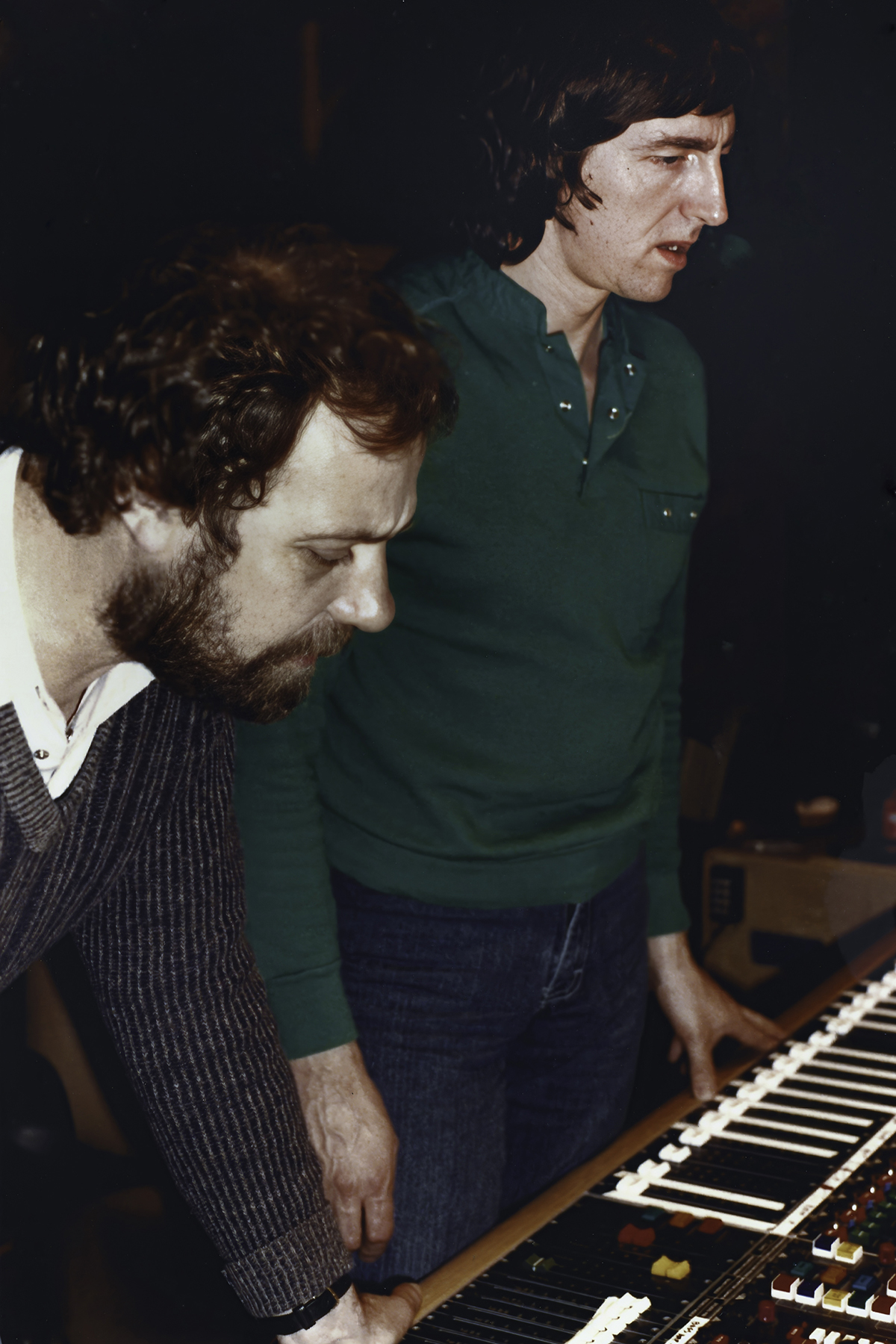
A year after Road Games, Allan invited me to help him with a new project. We spent months recording basic tracks, overdubs, and solos, again at the Music Grinder Recording Studios, along with “In the Mystery” and additional recording at Front Page Studio with engineers Dan Human, Dennis McKay, Biff Vincent, and Gary Wagner.
Allan embodied artistic integrity; it seemed as integral to him as the marrow in his bones. During a conversation one day, he said he didn’t understand why someone would hire him to play on their song and then give him specific directions. “If they’re hiring me, it must mean they know what I do. So, why would they want me to play like someone else?” he wondered.
One evening, Allan Pasqua came in to record his solo on “The Un-Merry-Go-Round.” Allan hung around while we set up and then stepped out to the lobby. After recording the solo, I brought Allan back into the control room to take a listen. All he said was, “Yeah, man,” and nodded his head. When Pasqua asked if he liked the solo, Allan responded, “Well, do you like it?” The freedom Allan extended to other musicians was unparalleled. He sought only their unfiltered musical expression on the recording, a level of trust and artistic liberty I have never witnessed before or since.
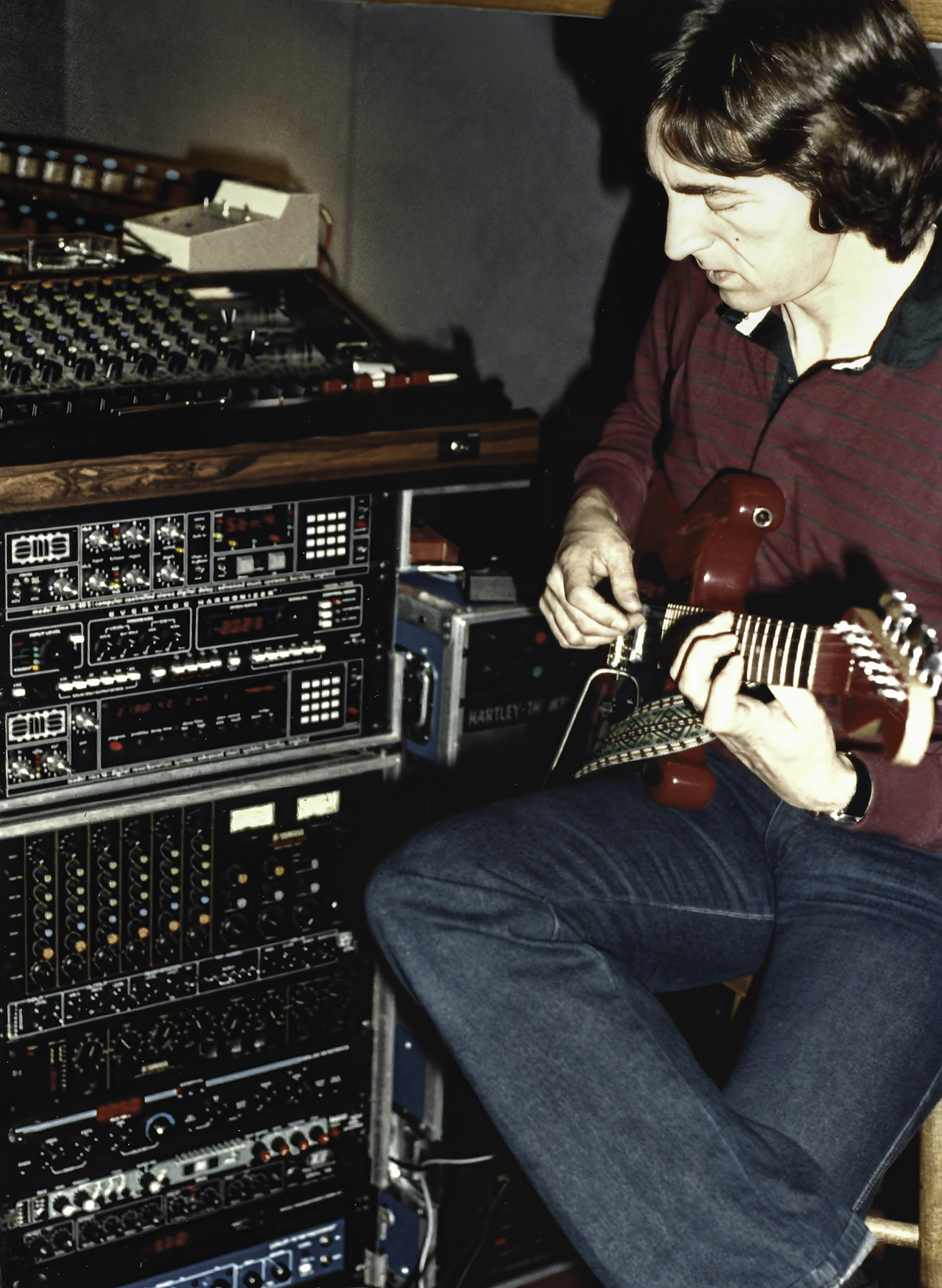
One morning at the Music Grinder, Allan walked in carrying an acoustic guitar. He wanted to try an acoustic solo on a song titled “Home.” We had already recorded several electric guitar solos, one of which he particularly liked, but he was looking for a different sound. Until then, I had never seen him play an acoustic guitar or even heard of him playing one. I set him up on a stool in the large room. I placed a Neumann U67 about 18 inches from the guitar, pointing towards the sound hole, and used an AKG C-414 aimed at the guitar body below the bridge to capture the rich, resonant wood sound.
Allan sat alone in that old room with the red brick walls, a skylight casting a twelve-foot rectangle of yellow light onto the floor. We recorded two takes; the second one is on the album. For the final mix, we spun in a recording Allan made at Goodman’s Pub in Hunslet-Leeds, England, using a Sony Walkman portable cassette recorder. The wooden clanking sounds in the song’s intro are from the hand pumps the bartenders were using to pull beer from the kegs. Allan named the album Metal Fatigue, released in 1985 on Enigma Records. The album features Chad Wackerman and Gary Husband on drums, Jimmy Johnson and Gary Willis on bass, Allan Pasqua on keys, and vocals by Paul Williams and Paul Korda. Daniel Gioffre of AllMusic called the album one of the most important fusion records of the ’80s and Holdsworth’s best work.
Recording an artist like Allan Holdsworth––or any vocalist or musician––is an intimate endeavor. You’re confined to a room with no windows for days, weeks, or months, and the creative process is fragile. I always felt deeply connected with the singers and musicians I recorded, aware that my thoughts and feelings could affect their performance. I would self-extinguish and maintain a neutral presence to keep my feelings out of their way, creating a clear opening for them to connect with their muse. This may sound like some crazy, esoteric voodoo, but it’s not. They needed me on their side.
Allan and I became friends, and I continued to assist him over the years, ultimately helping him compile and transfer his analog tapes to digital for his box set The Man Who Changed Guitar Forever –– a title he despised –– released a few months before his death in 2017. Working with Allan profoundly shaped my approach to music and recording. I consider myself fortunate to have been part of his creative journey. Allan’s music continues to inspire guitarists and music lovers worldwide, and I am grateful to have contributed to his legacy.
All the latest guitar news, interviews, lessons, reviews, deals and more, direct to your inbox!
Over his four-decade career in the recording industry, Robert Feist earned gold and platinum records and recorded for such artists as Stevie Nicks, Belinda Carlisle, and Anita Baker. He also served as recording engineer/mixer on Allan Holdsworth's influential Road Games and Metal Fatigue albums. Feist's commercial work includes countless TV, radio, and Internet commercials for a diverse clientele: Nike, Apple, Toyota, Google, and Absolut. His work includes music videos such as "Anybody Seen My Baby" by the Rolling Stones, "Home" by Sheryl Crow, and "My Love Is Your Love" by Whitney Houston, as well as numerous film, TV, and documentary credits. In 1996, Feist founded Ravenswork Studios in Venice, CA, which became one of the industry’s leading providers of audio post-production services, specializing in commercials, music videos, and documentaries. He is currently working on his upcoming memoir, Shades of Distortion. For more information, visit his website at robertfeist.com.
